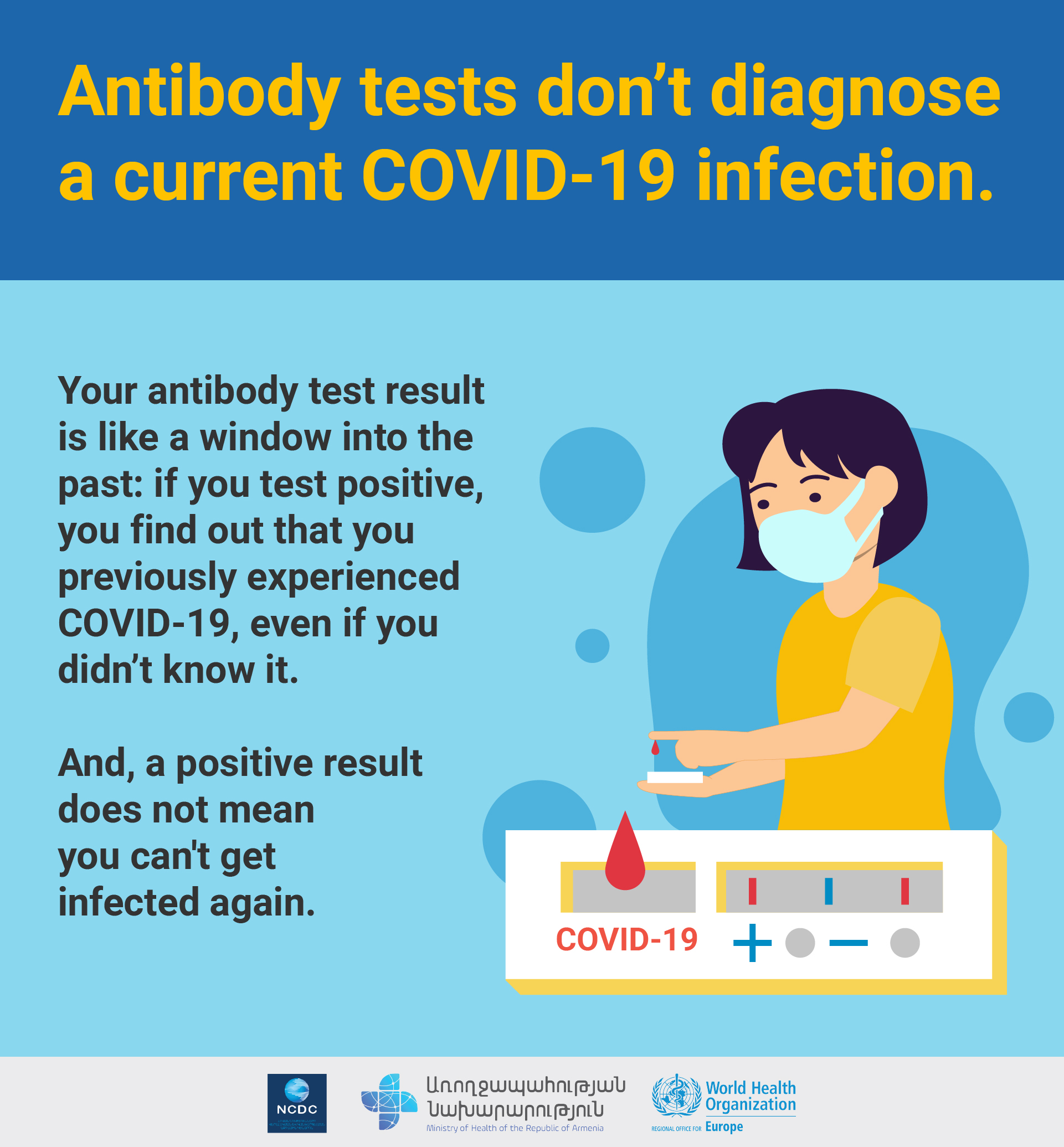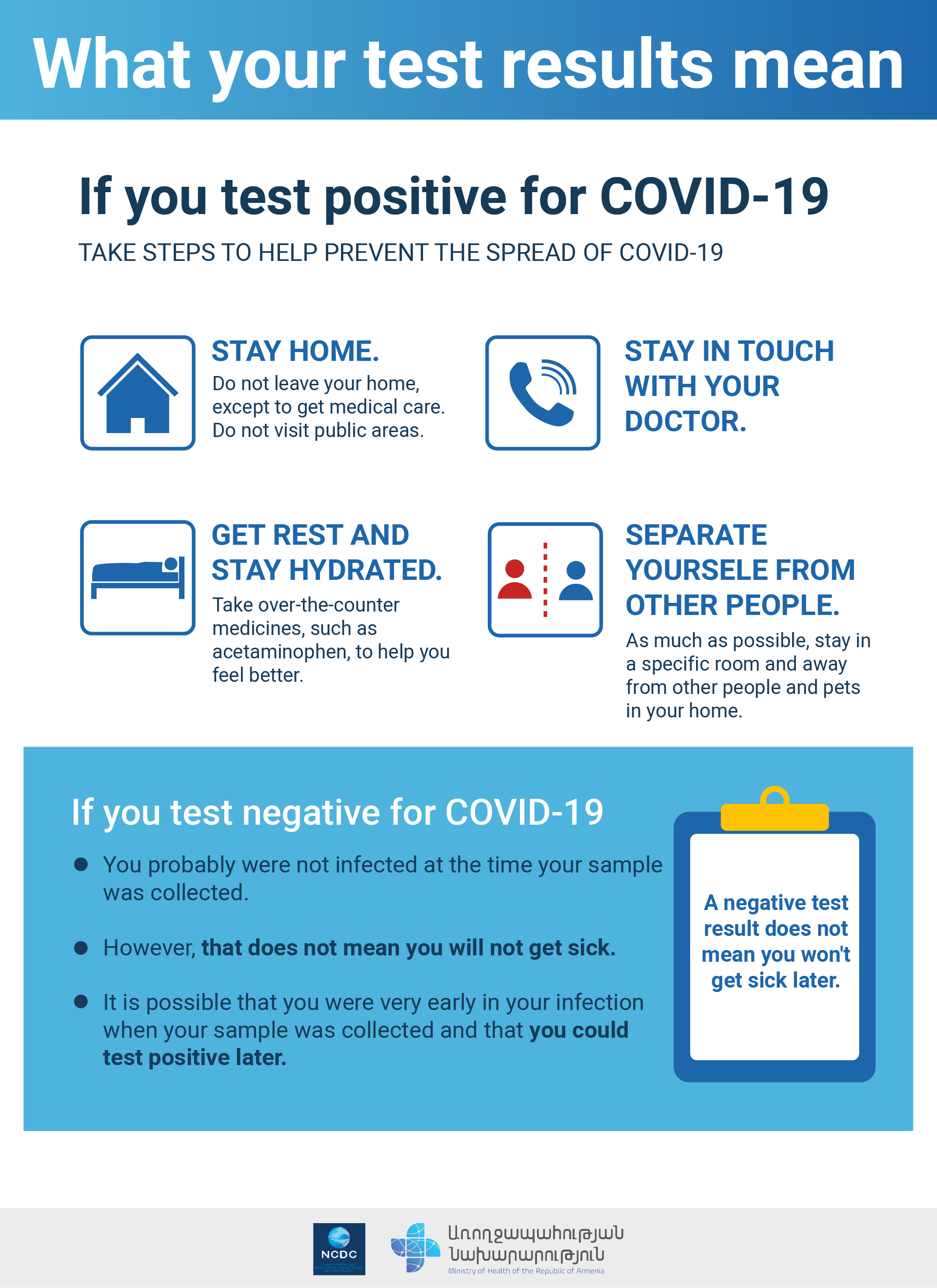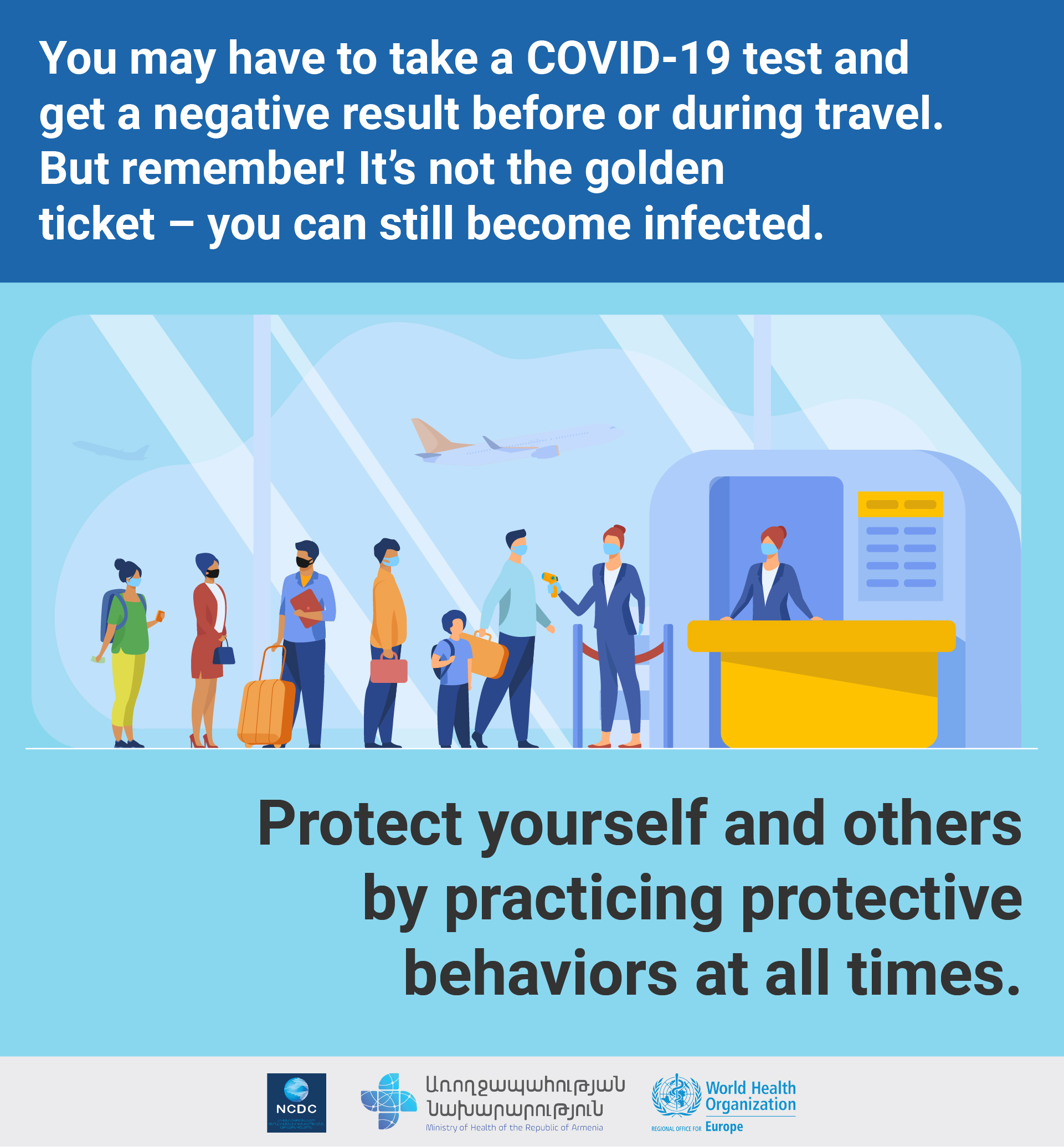Antibody test
An antibody test (also known as a serology test) might tell you if you had a past infection. Antibody tests should not be used to diagnose a current infection. Antibody testing should not be used to decide if someone needs to be vaccinated1.
Using Antibody Tests for COVID-19
 These tests look for the presence of antibodies, which are proteins made in response to infections. Antibodies are detected in the blood of people who are tested after infection; they show the body’s efforts to fight off a specific infection2.
These tests look for the presence of antibodies, which are proteins made in response to infections. Antibodies are detected in the blood of people who are tested after infection; they show the body’s efforts to fight off a specific infection2.● In general, a positive antibody test is presumed to mean a person has been infected with SARS-CoV-2, the virus that causes COVID-19, at some point in the past. It does not mean they are currently infected. Antibodies usually start developing within 1 to 3 weeks after infection.
● We don’t have enough information yet to say how protected someone might be from being infected again if they have antibodies to the virus
● COVID-19 vaccines teach your body to produce antibodies to fight infection from the virus that causes COVID-19. If you get an antibody test after receiving a vaccine, you might test positive by some (but not all) antibody tests. This depends on which type of antibody the specific test detects.
What does your antibody test result mean?
If you test positive
●  A positive antibody test result shows you may have antibodies from a previous infection or from vaccination for the virus that causes COVID-19.
A positive antibody test result shows you may have antibodies from a previous infection or from vaccination for the virus that causes COVID-19.
● Some antibodies made for the virus that causes COVID-19 provide protection from getting infected. The antibody protection and how long protection from antibodies might last is still being evaluated. Cases of reinfection and infection after vaccination have been reported, but remain rare. But getting vaccinated, even if you have already had COVID-19, can help your body make more of these antibodies.
● You may test positive for antibodies even if you have never had symptoms of COVID-19 or have not yet received a COVID-19 vaccine. This can happen if you had an infection without symptoms, which is called an asymptomatic infection.
● Sometimes a person can test positive for SARS-CoV-2 antibodies when they do not actually have those specific antibodies. This is called a false positive.
● Talk with your healthcare professional about your test result and the type of test you took to understand what your result means. (Test for Past Infection | CDC, n.d.)
 A positive antibody test result shows you may have antibodies from a previous infection or from vaccination for the virus that causes COVID-19.
A positive antibody test result shows you may have antibodies from a previous infection or from vaccination for the virus that causes COVID-19.● Some antibodies made for the virus that causes COVID-19 provide protection from getting infected. The antibody protection and how long protection from antibodies might last is still being evaluated. Cases of reinfection and infection after vaccination have been reported, but remain rare. But getting vaccinated, even if you have already had COVID-19, can help your body make more of these antibodies.
● You may test positive for antibodies even if you have never had symptoms of COVID-19 or have not yet received a COVID-19 vaccine. This can happen if you had an infection without symptoms, which is called an asymptomatic infection.
● Sometimes a person can test positive for SARS-CoV-2 antibodies when they do not actually have those specific antibodies. This is called a false positive.
● Talk with your healthcare professional about your test result and the type of test you took to understand what your result means. (Test for Past Infection | CDC, n.d.)
Confirmed and suspected cases of reinfection with the virus have been reported, but remain rare.
People who receive positive results on an antibody test but don’t have symptoms of COVID-19 and have not been around someone who may have COVID-19 are not likely to have a current infection. They can continue with normal activities, including work, but still take steps to protect themselves and others.
People who receive positive results on an antibody test and who are currently or recently sick or have been around someone with COVID-19 should follow the recommendations on caring for themselves and protecting others, and when they can be around other people again.
People who receive positive results on an antibody test but don’t have symptoms of COVID-19 and have not been around someone who may have COVID-19 are not likely to have a current infection. They can continue with normal activities, including work, but still take steps to protect themselves and others.
People who receive positive results on an antibody test and who are currently or recently sick or have been around someone with COVID-19 should follow the recommendations on caring for themselves and protecting others, and when they can be around other people again.
If you test negative
●  You may not have COVID-19 antibodies. This could be because you have not had an infection with the virus that causes COVID-19 or have not received a COVID-19 vaccine.
You may not have COVID-19 antibodies. This could be because you have not had an infection with the virus that causes COVID-19 or have not received a COVID-19 vaccine.
○ Antibody testing is not currently recommended to determine if you are immune to COVID-19 following COVID-19 vaccination.
● Some antibody tests will only detect antibodies from infection, not from vaccination with the virus that causes COVID-19.
● You could have a current infection, been recently infected, or been recently vaccinated. It typically takes 1 to 3 weeks after infection or vaccination for your body to make antibodies. If you are infected, you may get sick and spread the virus before you develop antibodies.
○ Some people may take even longer to develop antibodies, and a small portion of people who are infected or vaccinated may never develop antibodies.
● Sometimes people test negative for SARS-CoV-2 antibodies when they have those specific antibodies. This is called a false negative.
● Talk with your healthcare professional about your test result and the type of test you took to understand what your result means3.
 You may not have COVID-19 antibodies. This could be because you have not had an infection with the virus that causes COVID-19 or have not received a COVID-19 vaccine.
You may not have COVID-19 antibodies. This could be because you have not had an infection with the virus that causes COVID-19 or have not received a COVID-19 vaccine.○ Antibody testing is not currently recommended to determine if you are immune to COVID-19 following COVID-19 vaccination.
● Some antibody tests will only detect antibodies from infection, not from vaccination with the virus that causes COVID-19.
● You could have a current infection, been recently infected, or been recently vaccinated. It typically takes 1 to 3 weeks after infection or vaccination for your body to make antibodies. If you are infected, you may get sick and spread the virus before you develop antibodies.
○ Some people may take even longer to develop antibodies, and a small portion of people who are infected or vaccinated may never develop antibodies.
● Sometimes people test negative for SARS-CoV-2 antibodies when they have those specific antibodies. This is called a false negative.
● Talk with your healthcare professional about your test result and the type of test you took to understand what your result means3.

